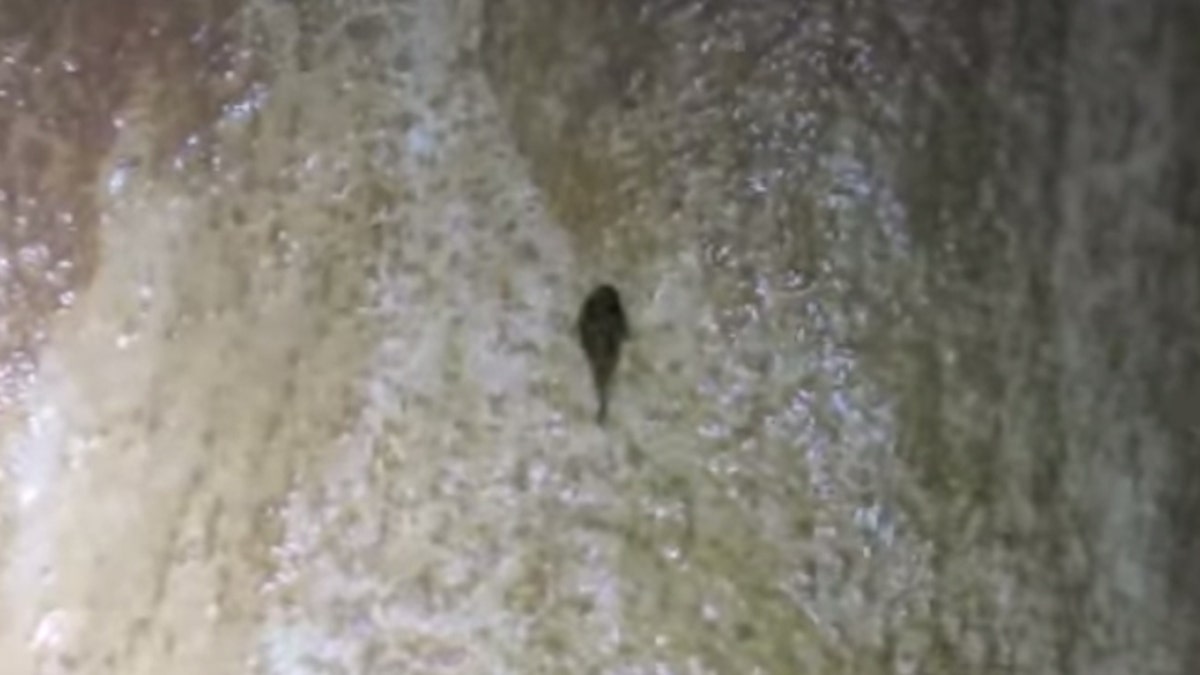
(YouTube)
You can fry it, you can grill it or you can bake it, but just don’t let it out of your sight or it might not end up on your dinner plate.
Scientists working in a remote cave system in the Napo district of Ecuador have discovered a species of catfish that does something that no other known type of fish does: It climbs walls.
The research team, which published its findings in the journal, Subterranean Biology, said that they observed a number of catfish scaling a nearly vertical flowstone waterfall, with some fish found almost ten feet above the cave floor.
The catfish, known by its scientific name Chaetostoma microps, is a member of the armored catfish family from the upper reaches of the Amazon basin and feeds mostly on algae. Their sucker-shaped mouths allow them to attach themselves to things like rocks and trees in fast flowing water.
While the general public may find a catfish pulling off a Spider-Man routine a bit bizarre, scientists say that relatives of the Ecuadorean fish are known to climb open rapids on surface streams.
What makes this sighting interesting, however, is that this is the first time the fish has been recorded climbing underground.
"It's not too surprising to find another catfish that climbs rocks. What is surprising is the environment that they are doing it in," Geoff Hoese, naturalist and lead author of the study, told the BBC. "This is a significant observation that merits investigation into why they are there."
Hoese added that what they witnessed in the cave may be a signal of evolution in progress.
"There isn't enough data at this point to do more than speculate, but it's nice to think that we may be watching a small but significant evolutionary step as a species moves from one niche to another," Hoese said.
Hoese said that it will take a great deal more time and study to determine, however, if these climbing catfish are evolutionary pioneers or just simply individuals who got lost.
"It's a beautiful and fascinating region where there is much more to discover, and we hope to return in the near future," he said.








































